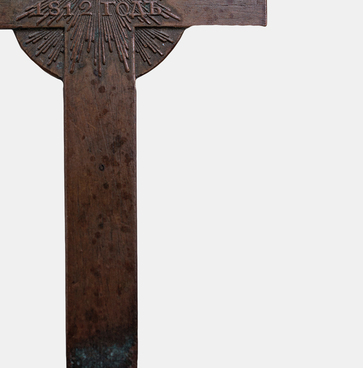Pyotr Aleksandrovich Cherevin was a nobleman from the Kostroma Governorate. He was born in October 1837.
He studied at the School of Guards Ensigns and Cavalry Junkers, from which he graduated on June 11, 1855 as a cornet in the Chevalier Guard Regiment.
On April 23, 1859, Cherevin was promoted to Lieutenant, and on March 18, 1860, he became Captain. On October 30, 1861, he received the rank of major.
From September 26, 1863, he was at the disposal of the commander of the Vilna Military District and took part in the suppression of the Polish uprising of 1863–1864. He distinguished himself in the battles with the Poles and was awarded the Order of St. Anna, 3rd class, with swords and a bow and the Order of St. Stanislaus, 2nd class, with swords. Cherevin was also promoted to Lieutenant Colonel.
From May 28, 1865, Cherevin was a member of the Ministry of War and on August 26 of the following year he received the rank of colonel.
On June 13, 1867, he was appointed aide-de-camp and served under Emperor Alexander II.
On May 24, 1869, Cherevin was appointed Commander of His Imperial Majesty’s Own convoy.
For distinction in military service, he was promoted to Major General of His Majesty’s retinue on October 17, 1877.
Cherevin was twice awarded the golden weapon with the inscription “For Bravery”, and his second sword was even decorated with diamonds. On August 30, 1879, he was awarded the Order of St. George, 4th class.
From August 6, 1880 to December 25, 1881, Cherevin held the post of Minister of Internal Affairs. In November 1881, an unsuccessful assassination attempt was made against Cherevin.
On January 1, 1882, he was appointed Adjutant General.
On August 30, 1886, he was promoted to Lieutenant General.
On May 28, 1894, he was appointed General-on-Duty under His Imperial Majesty.
The Russian diplomat, ethnographer, and orientalist Alexander Alexandrovich Polovtsov wrote about Cherevin that he was an “intelligent, kind, honest, and constantly drunk” man, who “was always with the sovereign, undoubtedly very intelligent and impeccably honest, and held huge influence over many matters, especially personal business.”
Count Witte gave a similar recommendation:



